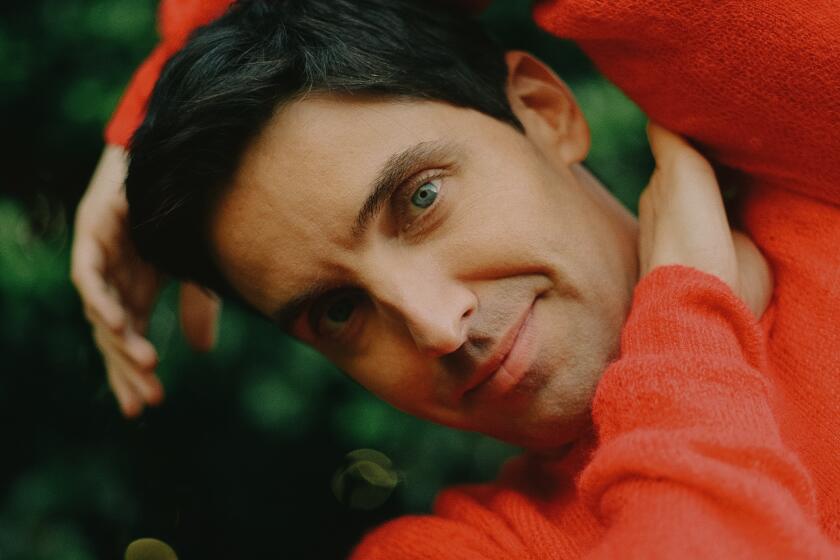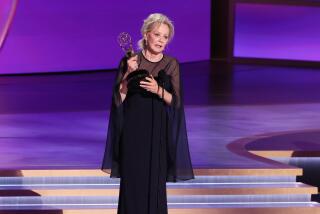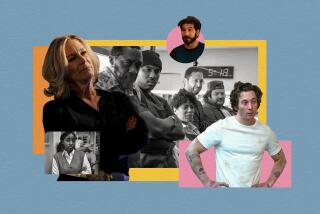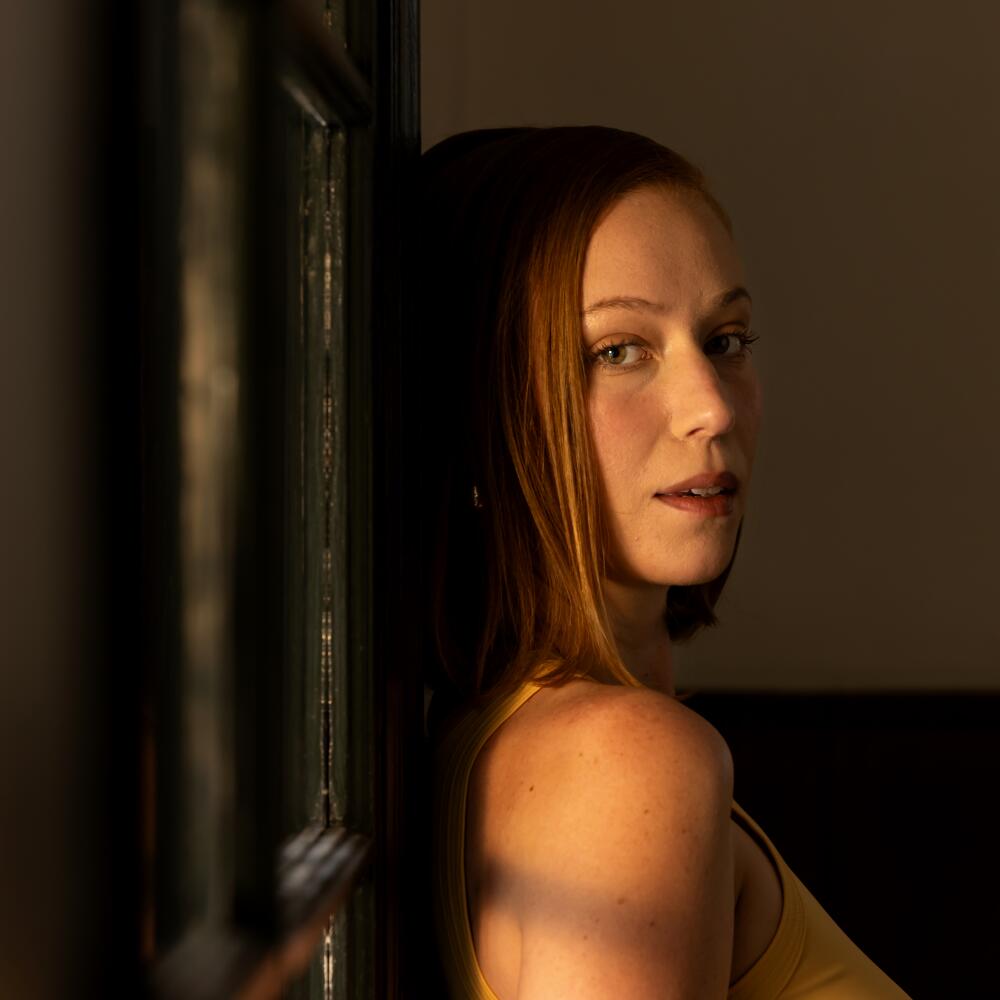
- Share via
When “Hacks” began three seasons ago, young writer Ava Daniels, played by young stand-up comic Hannah Einbinder, was a precocious if hubristic talent, reluctantly paired with veteran diva comedian Deborah Vance (Jean Smart). Their thorny collaboration brought out the best work from both of them. As the second season ended, Deborah’s career reached new heights — and then she fired Ava to force her out on her own. But these two can’t quit each other, as Season 3 proves. (Spoilers ahead.)
Einbinder was new to acting when she began playing Ava, but took to the role instantly (now having earned an Emmy nomination for each season), lending her character some of the absurdist depth that her stand-up offers.
Between seasons, Einbinder went back on the road as a stand-up; her first special, “Everything Must Go,” premiered on Max in June. And although she wrote most of the material before “Hacks” began, “My time acting has helped me to lean in to the theatrics of my special that have been inherent to my comedic style,” she says via video chat. “My ability to commit to larger performance choices is a result of the fact that I have learned to act in a real way.”
The ‘Hacks’ co-creator dons many hats on the comedy series: writer, producer, showrunner, director, actor. ‘They feed each other,’ he says of his various roles.
She notes that when she began the role, “Ava was so fully formed and there was so much to work with, and I think as the years have gone by I have just found ways to provide more texture to a character who is already so detailed.” To follow, Einbinder considers some key Season 3 moments that highlight shifts in Ava and her relationship with Deborah, for good or ill.
In the first episode, we learn Deborah has cut off all communication, making Ava so obsessed she had to go to couples’ therapy with her girlfriend, Ruby. She even gets into a car accident because she’s distracted by Deborah’s billboard — and then lies to Ruby about the accident. “That’s the type of thing a person is pushed to do when they are so lovesick,” Einbinder says. “Ava’s sense of morality goes kind of out the window when it comes to Deborah, whether that’s protecting her, going back to her, anything, so that very flippant white lie is indicative of the fact that that’s a relationship she has to hide.”
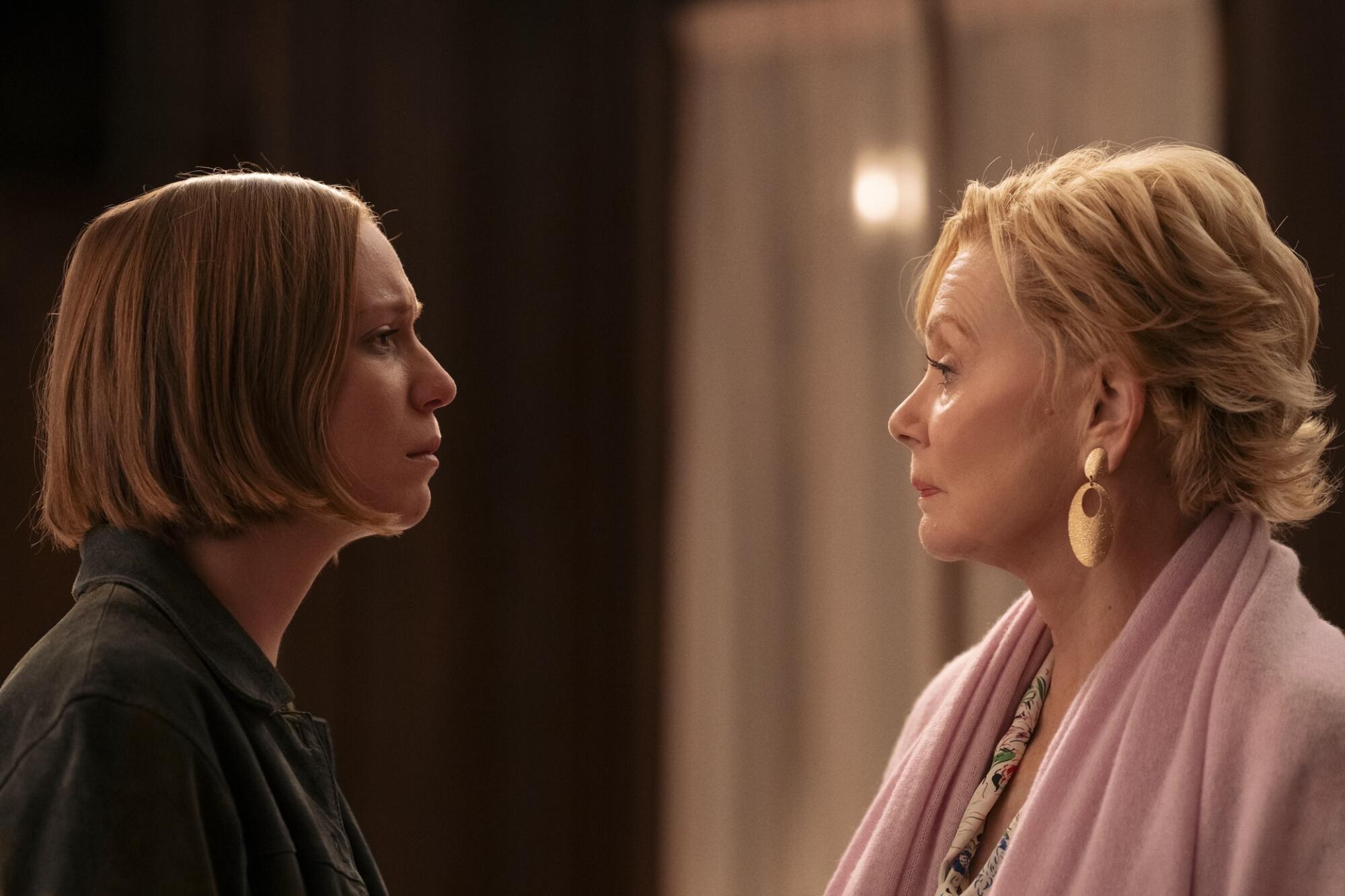
Later, Ava runs into Deborah, eventually breaking down while confronting her for cutting her out of her life. “I think Ava is in this place where she is acting impulsively, and that is such a vulnerable place, where not only does she get out of the elevator to go confront Deborah, but she ends up staying in the room to drink with her, and the two of them are laughing, and she’s giving in and betraying herself and any progress that she’s made, just to get another hit of this toxic, thrilling relationship,” Einbinder says. “To me, that put her in such a vulnerable place, and I think that’s why that reaction came through.”
When Deborah learns she didn’t land the job of her dreams, hosting “Late Night,” she and Ava are in the middle of a golf tournament. Driving their golf cart, Ava wants to brainstorm next moves, but Deborah won’t talk about it. Their ride turns silent, but their faces belie the churning beneath. “That is a moment that really displays the power imbalance and how much more committed Ava is to Deborah than Deborah is to Ava,” says Einbinder. “And also, I think they take turns being mature; it’s rare that they’re mature at the same time, so that would be an example of Ava being like, ‘Let’s keep going,’ and Deborah being like, ‘No, it’s over,’ giving up.”
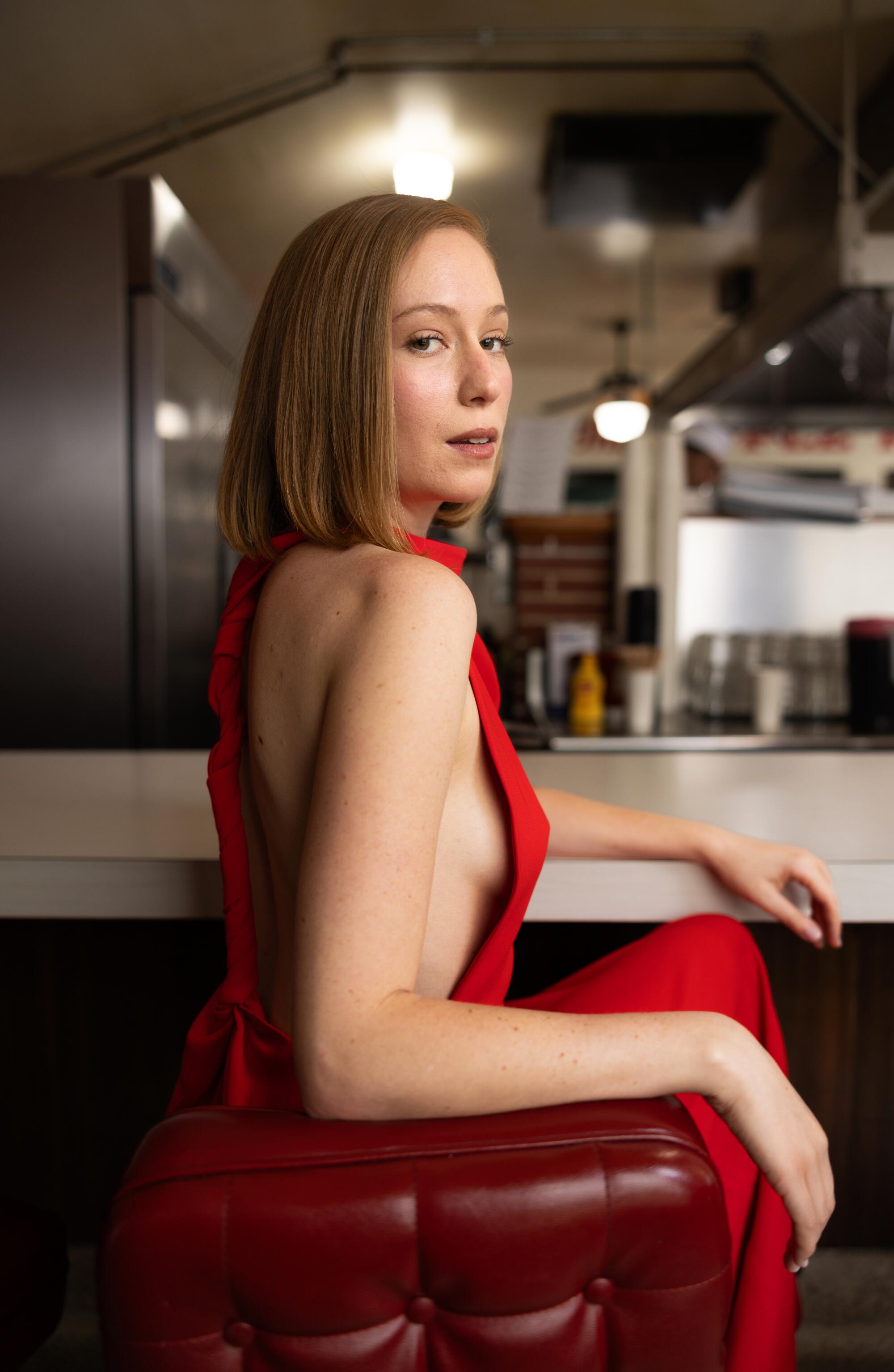
Then in the finale, after Deborah has, indeed, won the gig, she offers Ava the head writer job, only to renege out of fear, lying about the reason. When Ava learns of the betrayal, she blackmails Deborah into giving her the job. It is the wildest character leap Ava has yet taken. “When I read the scene initially, it felt very clear to me that the performance was going to reference a lot of the villains that I love, and a lot of the mob movies that I’ve seen,” Einbinder says. “I think Ava’s hand is forced in this way. This isn’t necessarily a shift in her as a person; this is something she has no choice but to do.” And Deborah would have done no less.
Einbinder’s final reflection is not on the role, but on her third Emmy nod. “It feels different [from the previous two], because I will say I’ve done a lot of work in my personal life on not hating myself and being really incredibly self-loathing — classic comedian archetype, obviously — but I really have committed this year. I just was sick of it, and I did a lot of work to just be cool with myself, and that has allowed me to feel proud in a way that I would not allow myself to before. It’s a relief.”
More to Read
From the Oscars to the Emmys.
Get the Envelope newsletter for exclusive awards season coverage, behind-the-scenes stories from the Envelope podcast and columnist Glenn Whipp’s must-read analysis.
You may occasionally receive promotional content from the Los Angeles Times.
